Karine Gevorgyan: ‘The pendulum of Western dominance is collapsing, it has moved to the East!’
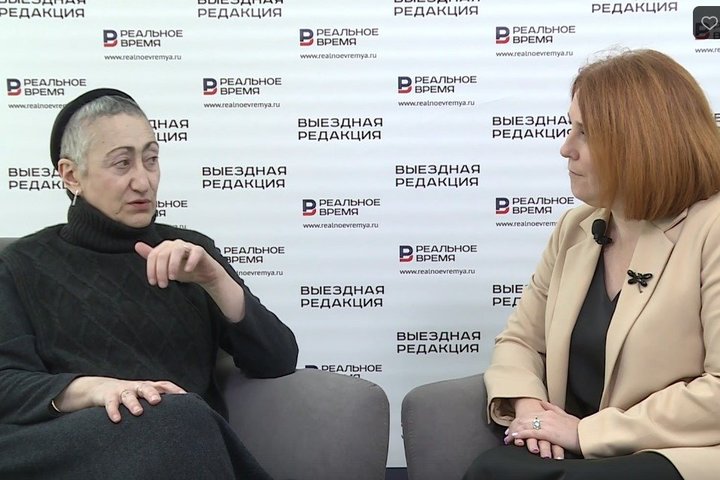
Chinese, Iranian, African and other Eastern civilisations exist on their own and each should be approached according to their culture, history, and customs. Karine Gevorgyan, a well-known political expert and orientalist, is convinced of this, stressing that there is no single world of the East, therefore there can be no single approach to interaction with these countries. The Russian Iranist told about this and many other things in an interview with the visiting editorial office of Realnoe Vremya on the fields of KazanForum.
Diversity of the East
There is no single world of the East. That's how the West has always tried to present them. But what is this West? A small peninsula, Europe. I'm joking, of course, but in fact, it really is a peninsula. With a high population density, good climate, favourable. All these mantras, troubles, especially British ones: the West is the West, and the East is the East, and they cannot come together — all this, from my point of view, excuse the slang word — is bullshit.
The East is so diverse! There is such a variety in it that one East does not even know how to deal with the other East. You must admit that it is impossible to compare, for example, the Maghreb (North Africa), or Morocco, with China.
We have several living civilisations in the East. Let's take Japanese culture, it is still affiliated with Chinese civilisation. And everyone else: both Koreans and Vietnamese, to one extent or another. The Chinese civilisation lives by its own laws, it is a completely local civilisation. Next to it, in fact, it is India, a separate civilisation, another one — both in style, aesthetics, anthropology, and languages, in general, everything is like from different planets.
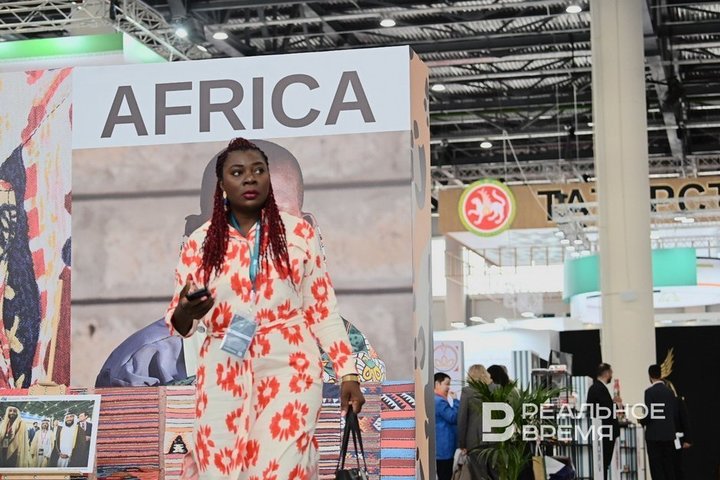
There is an Iranian civilisation next to India. It seems that Indo'Europeans are part of the Indian population, although there are many other peoples of the Dravidian group and others — this is also a completely separate civilisation. Next to it, there is the Arab civilisation — Muslim one, which sometimes negotiates with itself, then quarrels through the League of Arab States, then Syria is excluded, then it is returned.
You see, the East is so diverse that even, for example, let's take countries such as Lebanon and Syria (they are similar in this sense), compare them with Egypt — it will be a big difference, I'll tell you honestly, they distinguish each other well. Although this happens within the same civilisation.
Iran is closer to Tatarstan than Turkey
Hence the question: who should we establish relations with? Let's say, for example, Tatarstan, since the basic language is Turkic, on the one hand, that is, it seems to be closer to Turkey, right? But in everyday culture and historically, the ancestors of Tatarstan people interacted with whom? Naturally, with Iran — through the Caspian Sea and the Volga. Culturally and historically, and even partly in everyday culture, this can be traced. Iran is closer to you.
There is, as Macron said recently, a strategic uncertainty that does not scare me.
The thing is not how soon these ties will be established, but what will be the quality, depth and effectiveness of these ties. And it's not very easy, but it's so exciting!
I was once asked a question, I'm a Moscow native, and it was in my historical homeland. So I was asked in Armenia: you have travelled a lot, you have been there and there. I have been to Europe, I have lived in several countries, in Afghanistan, where a part of my heart has remained — it is such a beautiful country that if you have visited it once, it is impossible to forget it. I lived in Iran, Egypt, and Turkey. I was asked: “Where did you feel great?" I thought and thought, but I felt great everywhere.
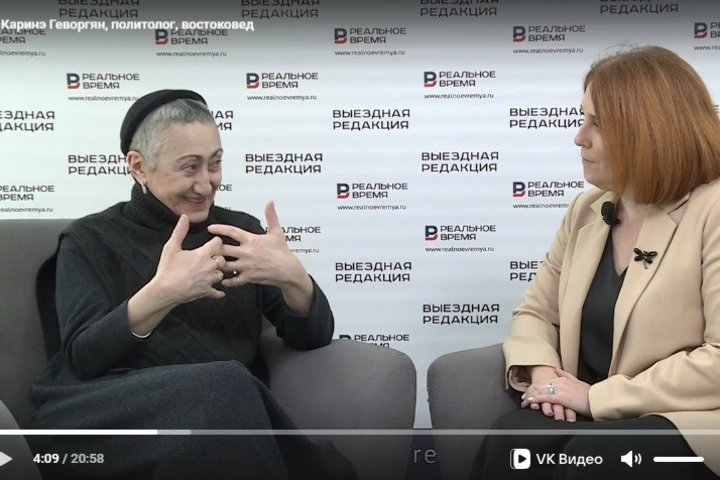
It turns out that people with a certain ethical code, no matter how they look, no matter what, sorry for the youth slang, “outfits” they would wear, they understand each other right away: that's good and bad. They don't have anthropological arrogance, like the burden of the white man, you know? It's just that anthropological arrogance cannot be inherent in a normal person. He will perceive any person as a human being too. Yes, he can say, “Look, how exotic, and dressed exotically, and that's it.” And then he starts talking to him and realises: “So what, what's the difference? Well, he is like that according to his climate, habits, and customs.”
This is superficial, but human qualities, for example, business qualities. Let's take, for example, Arab East, the rich countries — the states of the Arabian Peninsula. Bedouins have long been perceived as smart, practical, but in some ways not yet adapted to Western reality. Well, isn't that right? For example, during and after the First World War — they were still Bedouins, but everyone had already graduated from Harvard and Oxford. No matter what outfit they wear, they already know about this West as well as the West itself, if not better.
“We can sit everyone at our home, and this is where Tatarstan belongs”
The West thought all the time that it was studying the East, and in this regard, since the 18th century, the ideology of orientalism prevailed in the West, in which the East was seen as such a sleeping beauty Europe that needs to be stolen. I remind you that Europe, which Zeus took away, was an Asian, Phoenician princess. Asia in their understanding is such a woman, an odalisque. She froze, lies on the carpet, belly dances, lies down again, and so on. But it's not like that at all.
They thought that the East was not watching them like that. The whole East: Arabic, Iranian, Indian, and Chinese. But the East had long understood: why prove that we are the same people, with the same needs? Well, let's be considered mentally retarded, culturally retarded.
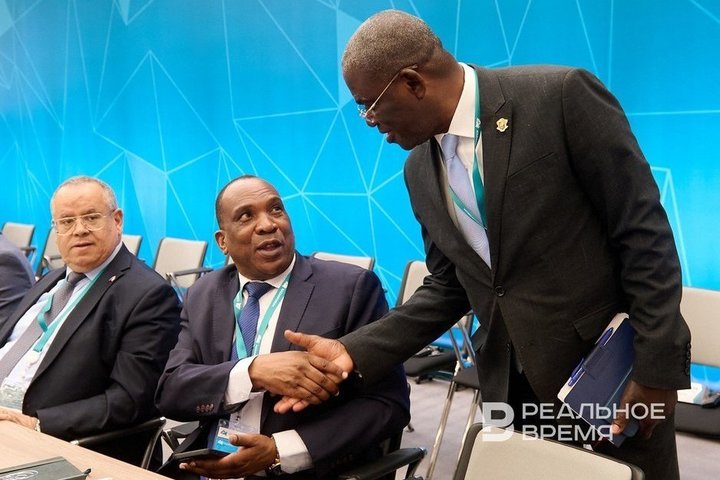
The East began to observe. Right now, before our eyes, this pendulum of Western dominance is coming to an end, dominance is ending, collapsing, and it has moved to the East. Now the different civilisations of the East will compete with each other. Russia, with its multiethnic, polyreligious, and even multi-confessional nature, may not be an arbitrator, but a kind of balancer in this system of interaction, including the rising Eastern civilisations of that very East: Arab, Iranian, Indian, and Chinese. Because they have plenty of contradictions among themselves. China and India, for example, but we can work with both China and India. Or Iran, Saudi Arabia and Egypt, they are also competitors. Or Iran and Turkey, they are also competitors. But we can sit everyone at our table, and this is where Tatarstan belongs.
Therefore, if Tatarstan focuses only on the Turkish and Arab directions, this will not be enough. This will not reveal the full potential of Tatarstan itself. Because the ancestors of the Tatarstanis and ethnic Tatars are at least co-authors of the Russian civilisation. What kind of civilisation did they create? Russian! They did not create an Arab civilisation, and not an Iranian one, but a Russian one. They brought striking features to the Russian civilisation and created a feature of this civilisation. I don't like the word “tolerance” — it's such a medical term, and I know that an absolutely tolerant organism is an organism in the fourth stage of oncology. So the word “tolerance” does not suit me, but the word “patience” at least. I'm not even talking about sympathy, but just patience. About ethical standards for our civilisation.
You know, we got used to each other. Moreover, we've gone through so much that we can already afford that we even love each other, we begin to love each other. In general, we have very great prospects opening up. What is more — in a new way. That's not because the Soviet Union and not because we were told that the friendship of peoples is so good. This cannot be imposed.
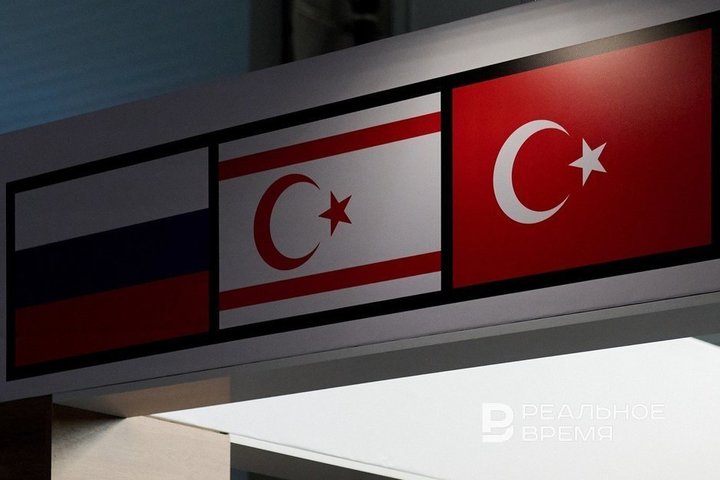
“Grandma explained, if they call, you know, the Tatars do this”
I have a school friend, she is Russian Russian, only Russian blood. And two friends from university. Unfortunately, one died very early — her name was Umal al-Kayali — this is the daughter of a famous Syrian writer, he is called the “Arab Chekhov” — this is Hasib al-Kayali. So, she's a half-Arab. Another friend, whom I adore, is Tatar, but she explains to me that she is more with a Bulgarian component. I am ethnically one hundred percent Armenian myself. At the same time, we tell each other: she tells me about the Tatar ethnic group, I tell her about the Armenian, we tell everything good and bad.
Can you imagine the quality of this friendship? We are both Orientalists, we studied in the same group with Gulya, we worked together. She is really a very close person to me, both psychologically, culturally, and aesthetically close. A very sensible person, I appreciate these qualities in her — simplicity and sensitivity, an acute sense of justice, pathological, I would say, honesty. I understand, probably, there may be some scammers among the Tatars, theoretically. Gulya is well done, she will always find her way. She was widowed early enough to cope with this grief. Absolutely amazing, she can do it. She's enterprising, but she never fusses, she's so calm.
I grew up in a multiethnic environment in Moscow, I was exotic in general, but not Tatars. When I was born, there were 300,000 Tatars in the five-million-strong Moscow. They were not exotic, they preserved their culture, the grandmothers spoke only Tatar, I don't even remember them speaking Russian. But we were all playing in the same yard, and we were looking at each other. They looked at me like an exotic fruit, and they used to ask me: “Who are you? You're not Russian.” I should have known that I was Armenian, I should have answered. And I had to answer: who are the Armenians?
My grandmother told me: “Here are Fanya and Misha — they are Tatars.” Well, not really Misha, but for convenience he was called Misha. “If his mom and dad call you...”, and there's a bunch of kids on the ground floor, nobody cares whose child, they'll call you to drink, feed, give you something delicious, bake a pie, and so on. “If you are called, you should know that the Tatars do this," my grandmother explained to me that I needed to take off my shoes before the door. She said: don't worry, it's clean there, you can go barefoot, in socks, don't do that, it might offend them, and so on. In general, we were taught this somehow and then it's easy, everything fits together very easily.
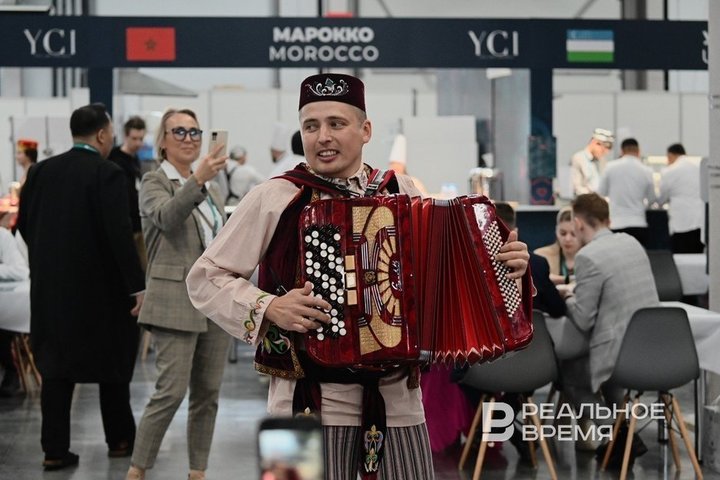
“It is not only the West that is engaged in destructive work”
I mean, Tatarstan can easily become a centre with an ethno-confessional experience of interaction.
There is a cultural part of the Turan project, but it also has a political component. It can carry dangers for our united state. By the way, this applies to Tatarstan and Bashkortostan, youth organisations. I've seen the photos, though, and then they were erased, but I'm telling it like it is. Such a gesture by radical Turkish nationalists. What does it mean? So propaganda is gradually going on — that's bad. The rest is philology, history — I'm only in favour, I think it's ok if the peoples are related and there are common linguistic moments, it's even necessary.
We should carefully look at where there is a political component that can be gradually imposed. It is not only the West that is engaged in destructive work.
Not to mention that many Orientalists and Turkologists are well aware that this project in its political part was helped by people very far from the same Turkey, living on famous islands.
Just like the outright reform of the Wahhabism phenomenon. Not reformation, but some kind of transformation. There is always a political component. For what? For manipulation. Do you and I want to be manipulated? I'm not. I believe that we have everything, the basis for harmony between the most diverse people, we have the resources for this. We don't have much to share.
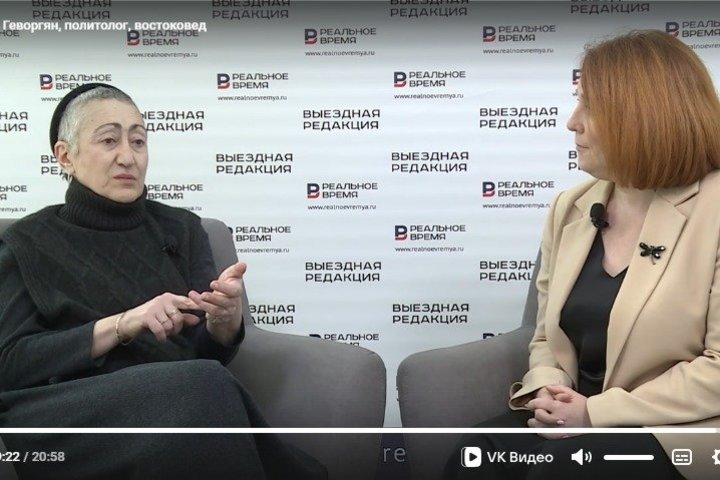
We don't need to tear apart the state, because together we will ensure everything for ourselves, as well as security. Well, let's imagine some region for a second, we won't name Tatarstan, any one. For example, relatively speaking, there is Russian plain, and there are several former Russian principalities. And what will they do? How will they provide air defense, missile defense, and where will they get energy from? What will they buy them for, if anything happens? Will they survive? No, of course not. Similarly, neither Tatarstan, nor Bashkortostan, nor in general the regions of the Volga region or the North Caucasus.
One should not be surprised at the phenomenon that there were two Chechen campaigns, and here the Chechens with the Akhmat battalion on the special military operation, Allahu Akbar, and there people say: thank God, the Orthodox, ours have come. Here we are, and thank God! And in general, loving each other is much more pleasant than hating.